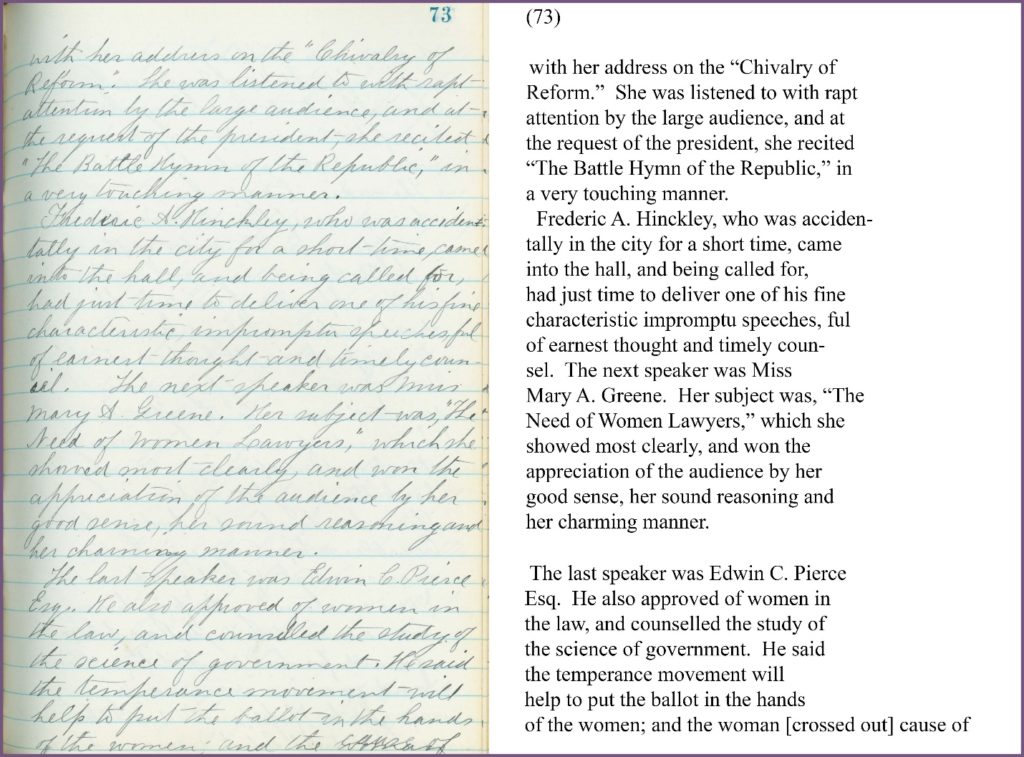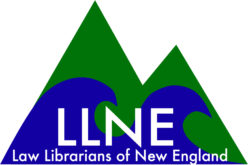This year the LLNE Service Committee continued to work closely with the Rhode Island State Archives for its 2019 spring project. Participants transcribed handwritten document pages virtually, from the comfort of their own homes or offices, which was a different approach to the transcription party that was held on Roger Williams University’s Providence Campus in November of last year. Participants received 5 pages (with the ability to request less or more to work on) from the Rhode Island Equal Suffrage Association (RIESA) journal, which is comprised of minutes, written in late 19th century cursive, of the meetings held between 1888 and 1892. Also included for participants were transcription tips and helpful resources on how to read historical handwriting.
I was unable to attend the transcription party in November, so Iwas excited to be given an opportunity to transcribe pages virtually. I’ve worked on transcription projects in the past for my place of employment and as a volunteer for the genealogical research site FamilySearch, and over time I’ve found that I actually really enjoy it. Older handwriting can be incredibly frustrating to read, and it often requires a bit of detective work; getting a sense of the way the author stylized certain letters and words and figuring out the context of the document, if it’s not immediately apparent, can often provide important pieces to the puzzle. And what librarian doesn’t like a little bit of a research-related challenge?
I was assigned five pages in the RIESA journal that were a summary of a meeting held in 1891, and the main topics that were discussed included the need for women in law and government, the enfranchisement of women, and the protection of children factory workers. It was incredibly easy to view the document online (no downloading was necessary) and write my transcription in Word. I was fortunate that the secretary who took the notes for this particular meeting wrote relatively clearly, and it may have taken me no more than an hour of my time altogether to transcribe the pages. There were a couple words I scratched my head over (like “grogshop”???), but by the end I was confident that I had everything transcribed correctly—spelling and grammatical mistakes included, even though it’s sotempting to make corrections! It was also neat to read first-handabout the different speeches given during this spirited meeting by well-known names such as Mary Ann Greene and William Lloyd Garrison, with Anna Garlin Spencer presiding over the meeting.
Once the transcription was complete, I emailed the file to the Rhode Island State Archives. While certain types of documents can be fed through optical character recognition (OCR), transcribing handwriting requires manual effort and time; it felt good to be able to help provide greater access to this important association’s records for researchers and the general public.
Kaitlin Connolly
LLNE Service Committee
State Library of Massachusetts






